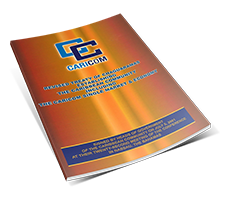Rule1: Interpretative Provisions
- In determining the place of production of marine products and goods produced therefrom, a vessel of a Member State shall be regarded as part of that State. In determining the place from which goods have been consigned, marine products taken from the sea or goods produced therefrom at sea shall be regarded as having been consigned from a Member State if they were taken by or produced in a vessel of a Member State and have been brought direct to the Community.
- For the purpose of these Rules a vessel shall be treated as a vessel of a Member State only if –
(a) it is registered in a Member State;
(b) it carries a complement (inclusive of the Master thereof) of which not less than three-fourths are nationals of Member States; and
(c) it is majority owned and operated by –
(i) nationals of Member States, or
(ii) a Government of a Member State, or
(iii) a statutory Corporation of a Member State
In this paragraph nationals of Member States shall have the same meaning as in paragraph 5 of Article 32 of this Treaty.
“Materials” includes raw materials, intermediate products, parts and components used in the process of production, repair, renovation or improvement of the goods.
Energy, fuel, plant, machinery and tools used in the production, repair, renovation or improvement of goods within the Community and materials used in the maintenance of such plant, machinery and tools, shall be regarded as wholly produced within the Community when determining the origin of these goods.
Goods other than those to which paragraph 1 of Rule 2 of these Rules applies shall not be treated as being of Community origin if they are produced by any operation or process which consists only of one or more of the following, whether or not there is a change of tariff heading –
(a) operations to ensure the preservation of goods during transport and storage (ventilation, spreading out, drying, chilling, placing in salt, sulphur dioxide or other aqueous solution, removal of damaged parts, and like operations);
(b) simple operations consisting of removal of dust, sifting or screening, sorting, grading, classifying, matching (including the making up of sets of articles), washing, painting and cutting up resulting in the mere reduction in size;
(c) (i) changes of packing;
(ii) simple placing in bottles, flasks, bags,cases, boxes, fixing on cards or boards and other simple packing operations;
(d) affixing marks, labels or other like distinguishing signs on goods or their packaging;
(e) simple mixing of materials imported from outside the Community or of undetermined origin if the characteristics of the goods as a whole are not essentially different from the characteristics of the materials which have been mixed;
(f) operations which consist solely of welding, soldering, fastening, riveting, bolting and like operations, or otherwise putting together of all finished parts or components to constitute a finished product.
“Chapter” and “tariff heading” in article 84 or in this Schedule shall mean the Chapters and headings of the Harmonised Commodity Description and Coding System.
- For the purpose of sub-paragraph (f) of paragraph 5, the expression “finished parts or components” refers to those articles which are imported into the Community in a form or condition which does not require any further fabrication, change in shape or form, resulting in a change in identity or use or the application of permanent protective/decorative coating for the purposes of incorporation in the finished product.
- Paragraphs 5(f) and 7 in this Rule shall take effect one year after the entry into force of the amendment of this Schedule, pursuant to the decision of the Council at its Special Meeting in July
1990.
